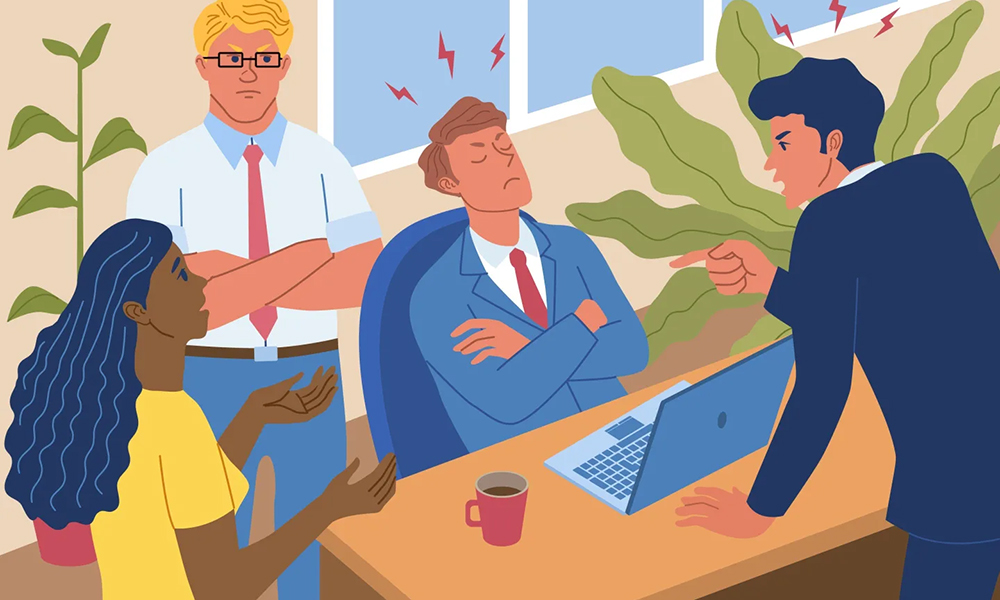
事实证明,你可能需要对疲倦的同事宽容一些。
在《PLOS生物学》(PLOS Biology)杂志发表的一篇同行审议论文中,来自加州大学伯克利分校(University of California, Berkeley)的研究人员表示,他们发现了睡眠不足与自私之间的潜在联系。
睡眠不足除了会使人精力下降以外,还会对身体产生影响,例如缩短注意力持续时间、不良决策和记忆力衰退等,但加州大学伯克利分校的研究认为,睡眠不足还会消磨人们的利他主义倾向。
研究发现,少睡一个小时便足以摧毁人们帮助他人的意愿,包括家人和亲密好友。
研究团队通过一系列实验来确定睡眠与自私之间的联系。
首先,他们分析了人们在充分睡眠和睡眠不足之后的行为,结果发现78%的受试者在睡眠不足时“帮助他人的意愿下降”。
研究人员指出,这种影响在所有受试者当中普遍存在,不受受试者的情绪、精力或者是否有同理心等因素的影响。
他们还表示:“睡眠不足导致人们帮助他人的意愿下降的影响非常明显,无论是帮助陌生人还是熟人(比如朋友或同事)。”
“这意味着与需要帮助的人(例如朋友或者陌生人)是否熟悉,似乎并不能免于受到与睡眠不足相关的利他行为意愿下降的影响。”
研究人员还进行了大脑扫描,要求受试者填写行为调查表,并监测了美国调整到夏令时(Daylight Savings Time)导致美国人睡眠时间减少一小时的时候慈善捐款有何变化。
核磁共振(MRI)扫描分析发现,睡眠不足和大脑中与开展“亲社会行为”有关的部分活动减少之间的联系。亲社会行为是指令其他人或全社会受益的行为。
受试者自行报告了睡眠持续时间和次日的行为。这些行为调查发现,睡眠效率不佳与次日帮助他人的意愿下降之间存在联系。
此外,研究人员发现调整到夏令时“使整个社会层面帮助他人的现实行为减少。”
科学家们分析了2001年至2016年,在遵守夏令时的美国各州每年春季调整到夏令时期间的300多万美元慈善捐款。
研究人员说:“与调整到夏令时前后几周相比,在进行调整期间人们利他的捐款决策显著减少。”
他们表示:“三项研究的结果均证明,睡眠不足(睡眠时间和质量方面)对于人们是否愿意帮助他人并且能够付诸行动,具有负面的影响。”
“这种影响不容小觑,因为人类的互帮互助对维持相互合作的文明社会至关重要,而且在许多发达国家,睡眠不足的比例不断提高。”(财富中文网)
译者:刘进龙
审校:汪皓
事实证明,你可能需要对疲倦的同事宽容一些。
在《PLOS生物学》(PLOS Biology)杂志发表的一篇同行审议论文中,来自加州大学伯克利分校(University of California, Berkeley)的研究人员表示,他们发现了睡眠不足与自私之间的潜在联系。
睡眠不足除了会使人精力下降以外,还会对身体产生影响,例如缩短注意力持续时间、不良决策和记忆力衰退等,但加州大学伯克利分校的研究认为,睡眠不足还会消磨人们的利他主义倾向。
研究发现,少睡一个小时便足以摧毁人们帮助他人的意愿,包括家人和亲密好友。
研究团队通过一系列实验来确定睡眠与自私之间的联系。
首先,他们分析了人们在充分睡眠和睡眠不足之后的行为,结果发现78%的受试者在睡眠不足时“帮助他人的意愿下降”。
研究人员指出,这种影响在所有受试者当中普遍存在,不受受试者的情绪、精力或者是否有同理心等因素的影响。
他们还表示:“睡眠不足导致人们帮助他人的意愿下降的影响非常明显,无论是帮助陌生人还是熟人(比如朋友或同事)。”
“这意味着与需要帮助的人(例如朋友或者陌生人)是否熟悉,似乎并不能免于受到与睡眠不足相关的利他行为意愿下降的影响。”
研究人员还进行了大脑扫描,要求受试者填写行为调查表,并监测了美国调整到夏令时(Daylight Savings Time)导致美国人睡眠时间减少一小时的时候慈善捐款有何变化。
核磁共振(MRI)扫描分析发现,睡眠不足和大脑中与开展“亲社会行为”有关的部分活动减少之间的联系。亲社会行为是指令其他人或全社会受益的行为。
受试者自行报告了睡眠持续时间和次日的行为。这些行为调查发现,睡眠效率不佳与次日帮助他人的意愿下降之间存在联系。
此外,研究人员发现调整到夏令时“使整个社会层面帮助他人的现实行为减少。”
科学家们分析了2001年至2016年,在遵守夏令时的美国各州每年春季调整到夏令时期间的300多万美元慈善捐款。
研究人员说:“与调整到夏令时前后几周相比,在进行调整期间人们利他的捐款决策显著减少。”
他们表示:“三项研究的结果均证明,睡眠不足(睡眠时间和质量方面)对于人们是否愿意帮助他人并且能够付诸行动,具有负面的影响。”
“这种影响不容小觑,因为人类的互帮互助对维持相互合作的文明社会至关重要,而且在许多发达国家,睡眠不足的比例不断提高。”(财富中文网)
译者:刘进龙
审校:汪皓
Turns out you may actually need to cut your tired coworker some slack.
In a peer-reviewed paper published in the journal PLOS Biology, researchers from the University of California, Berkeley, said they had found a potential link between disrupted sleep and selfishness.
Aside from reducing our energy levels, sleep deprivation is also known to trigger physical effects like a reduced attention span, poor decision making, and worsened memory—but according to the Berkeley study, it could also be killing our altruistic tendencies.
The study found that losing just one hour of sleep could be enough to destroy our willingness to help others—even family and close friends.
The research team ran a series of experiments to determine a link between sleep and selfishness.
First, they analyzed people’s behavior after a good night’s sleep and a night’s sleep of deprivation, finding that 78% of participants demonstrated “a reduction in the desire to help others” when they had lost out on sleep.
The effect was consistent among all participants, researchers noted, regardless of their mood, energy levels, or whether they were empathetic individuals.
“The withdrawal of helping caused by sleep loss was significant no matter whether the circumstance involved helping a stranger or helping someone familiar (i.e. friends/colleagues),” they added.
“This would suggest that familiarity with the individual in need of help (e.g., a friend versus stranger) does not appear to confer immunity against the sleep loss-associated reduction in the desire to act altruistically.”
They then carried out brain scans, asked participants to fill in behavior surveys, and monitored changes to charitable donations when Americans lost an hour of sleep in the switch to Daylight Savings Time (DST).
MRI scan analyses found a link between sleep loss and reduced activity in the part of the brain associated with engaging in “prosocial behaviors”—behaviors that benefit other people or society as a whole.
The behavioral surveys, where participants self-reported their sleep duration and next-day behavior, found that worse sleep efficiency was associated with decreases in the desire to help others the following day.
Meanwhile, researchers found that the transition to DST, “decreases real-world behavioral acts of altruistic helping at a larger societal level.”
Scientists analyzed more than 3 million charitable donations made between 2001 and 2016 in the U.S. during the transition to DST in the spring of each year in states that observed DST.
“The transition to DST was associated with a significant decrease in the altruistic decision to give away money (make donations) compared to the weeks either before or after the transition,” researchers said.
“Findings across all three studies establish insufficient sleep (both quantity and quality) as a degrading force influencing whether or not humans wish to help each other, and do indeed, choose to help each other,” they added.
“The implications of this effect may be non-trivial when considering the essentiality of human helping in the maintenance of cooperative, civil society, combined with the reported decline in sufficient sleep in many first-world nations.”






